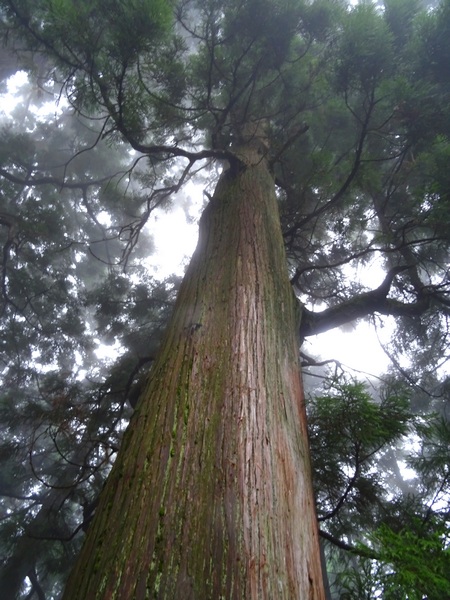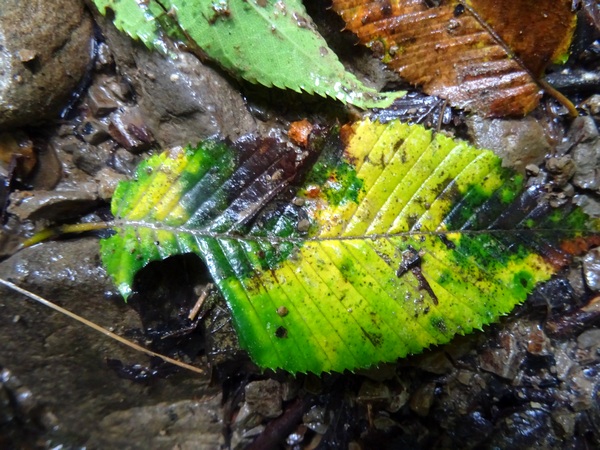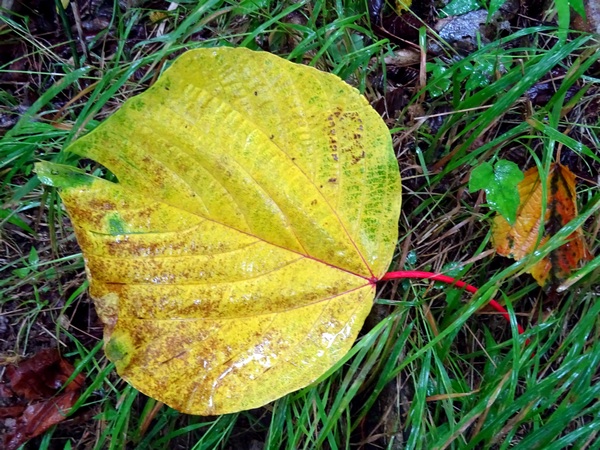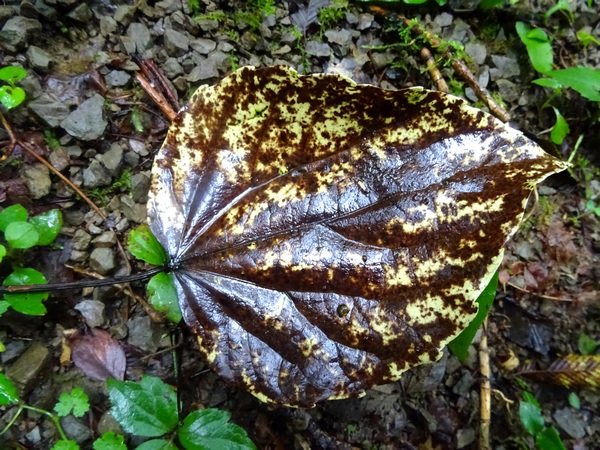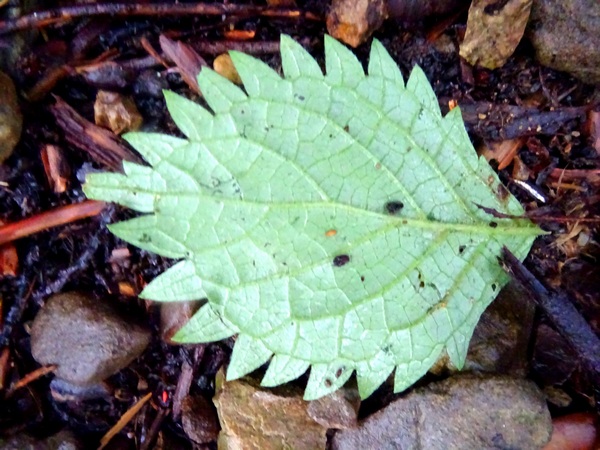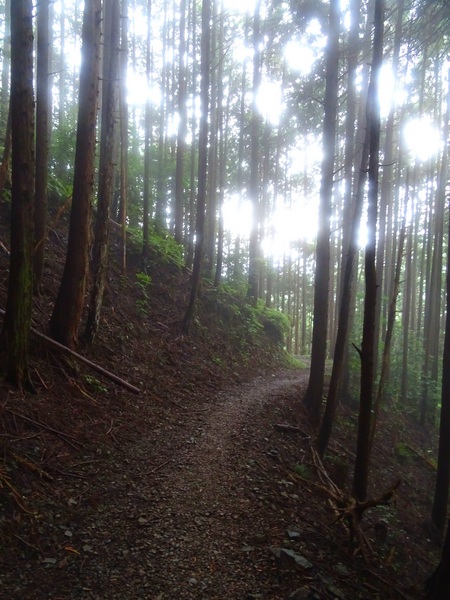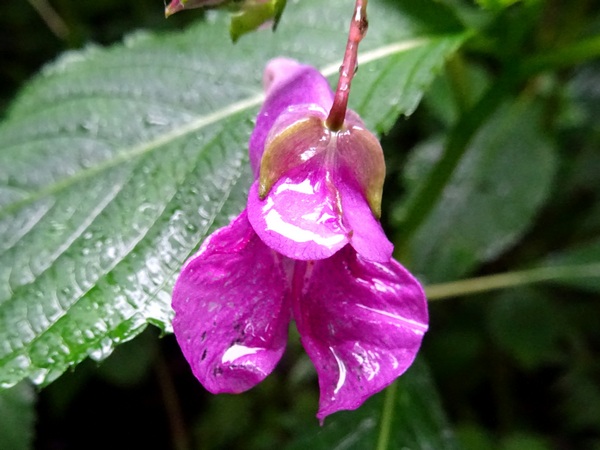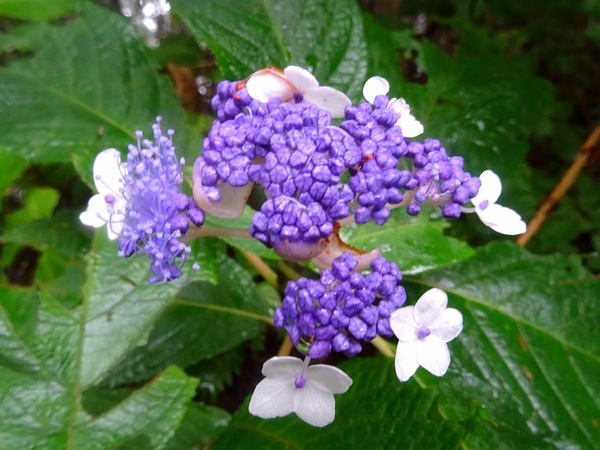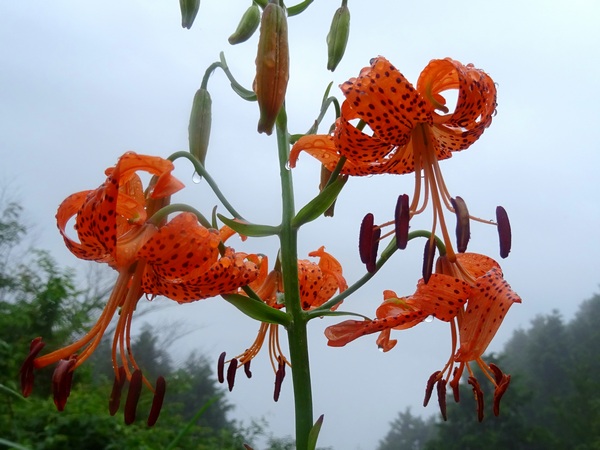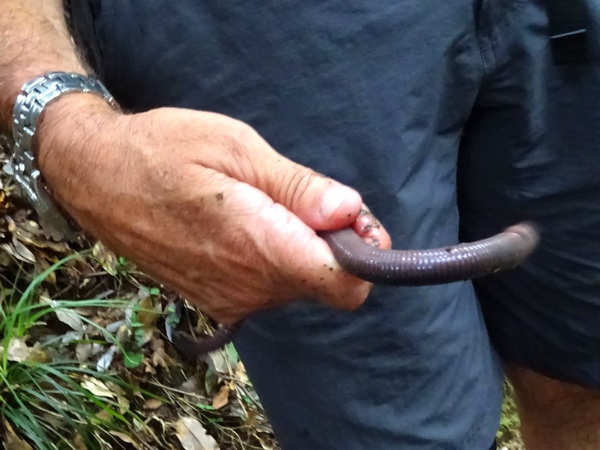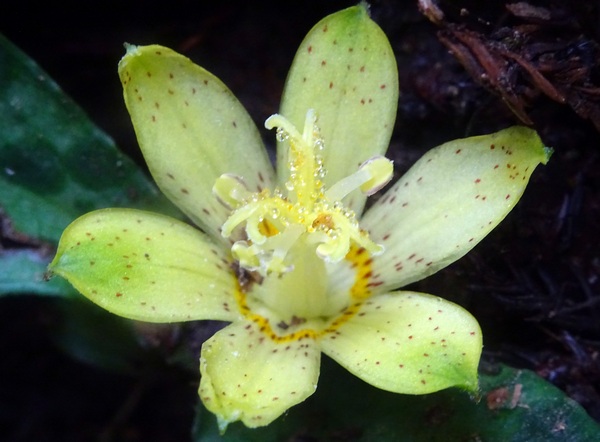Not all that much rain, really. But enough. Enough to loosen up your mind a bit.
On a day like this, the cedars don’t look taller—just wiser.
 In slightly wet conditions, the leaves of trees allow their natural affection for one another to get the best of them. They press their bodies together—and do their best to go swimming off together through the grey. Of course, if you’ve mastered your study of evolution, you’ll know it’s not surprising to see leaves trying to swim.
In slightly wet conditions, the leaves of trees allow their natural affection for one another to get the best of them. They press their bodies together—and do their best to go swimming off together through the grey. Of course, if you’ve mastered your study of evolution, you’ll know it’s not surprising to see leaves trying to swim.
After all, when they get wet and shiny, their colors are as vibrant as those of any tropical fish.
And just look at those backbones and ribs. Those features are shouting, “Of course, fish are our close relatives!”
Once you accept this reality, you’ll look down at leaves and be pretty sure they are not immobile on the ground—you’ll see that they are, most likely, hovering above the ground, surfing on waves of air.
Some leaves, you’ll note, trace their ancestry to fish—but through the dinosaurs and reptiles.
The light, oddly enough, loves a rainy day—especially when there is a mountain forest to cut into.
But the light realizes that it can’t cut through enough to shine on everything, so it tends to shine on the things that you want to see.
Really.
Don’t you like these wild hydrangeas? And you can see them, can’t you? So there you have it.
In the middle of all this grey, you can see these devil lilies just fine. Those sweet drops of water you see clearly.
It perhaps goes without saying, but a bit of rain makes the day a better one for discovering toad (lily)s.
And on a rainy day, you’ll be much more likely to have the opportunity to hold a giant worm.
Lucky you.
And consider this: the yellow flowers of the chabo-hototogisu only bloom for a single day. If you had stayed home because of the rain, you would have never met this guy.

